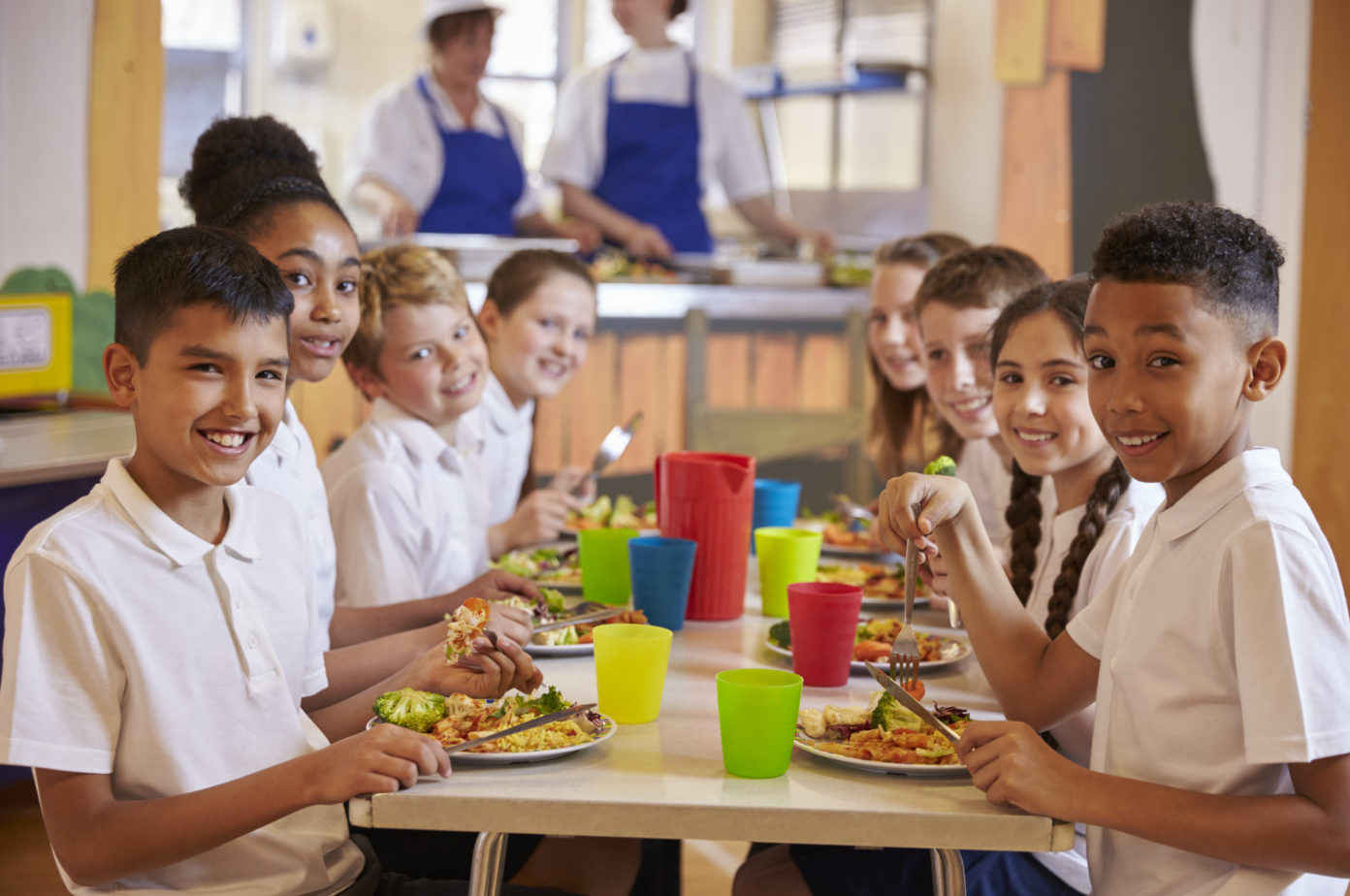Food Sharing Tables – Reimbursement and Liability Protections
March 5, 2019
Overview
School food sharing tables (FSTs), where students can place uneaten food for other students to consume, help reduce food waste and food insecurity among children and adolescents. School district officials contacted the Network to determine whether FSTs would affect their federal reimbursed for meals.

Federal school food programs, such as the National School Lunch Program (NSLP), provide meals to millions of children per day. However, over $1 billion in discarded food is wasted every year.1 To help conserve food and costs, many schools with food programs have implemented FSTs to redistribute food to other students or donate the food to nonprofit organizations. Schools may be concerned that FSTs will affect whether they can be federally reimbursed for meals provided through these meal programs.2 So long as certain federal, state, and local requirements are met, however, FSTs pose no immediate issues impacting federal reimbursement policies.3
FSTs within school cafeterias allow children to place their unconsumed food (e.g., packaged products, fruits) or beverages (e.g., packaged juices) for consumption by other students, reuse, or donation. During school breakfast or lunch times these tables help reduce food waste and encourage children to consume healthy food options at no cost to them. With federal guidance, many localities have implemented FSTs in their Child Nutrition Programs supported by the U.S. Department of Agriculture (USDA).
USDA acknowledges that K-12 schools play an active role in reducing food waste and educating future generations about resource conservation.4 Food donation is encouraged as a “longstanding policy in all Child Nutrition Programs.”5 USDA released a memo on “The Use of Share Tables in Child Nutrition Programs” on June 22, 2016,6 labeling them an acceptable and “innovative strategy” for use in the NSLP, School Breakfast Program, Child and Adult Care Food Program, and Summer Food Service Program.
USDA’s Food and Nutrition Service (FNS) explicitly supports FSTs, listing several ways that items may be reused:
- children may take a food or beverage item for free;
- items “may be served and claimed for reimbursement during another meal service;” or
- items can be donated to non-profit organizations.7
Schools using FSTs must follow applicable food safety requirements under federal,8 state, and local laws, including (1) Food and Drug Administration’s Food Code safety regulations for re-served food;9 and (2) “the local educational agency’s Hazard Analysis Critical Control Point plan.”10 Clear guidelines should be established for:
- meals that can be reused for reimbursement;
- food safety guidelines to prevent foodborne illness;
- supervising the FST;
- promoting the FST to children and their families; and
- adjusting school “menu planning and production practices…to reduce leftovers or unusable foods.”11
Several jurisdictions have adopted or encouraged FSTs in their local schools. California enacted Senate Bill 557 on January 1, 2018 to permit schools to set up share table and food donation programs,12 directing its Department of Education – Nutrition Services Division to provide guidance.13 Los Angeles County Department of Public Health – Environmental Health Division published comprehensive best practices for FSTs and food donation in October 2018.14 Washington State encourages FSTs through its School Food Share Program and accompanying toolkit.15
Network attorneys are available to answer questions on this and other public health topics at no cost to you, and can assist you in using law to advance your public health initiatives. Contact a Network Attorney in your area for more information or visit our Legal Technical Assistance Library to find answers to common public health law questions.
The legal information and assistance provided in this document does not constitute legal advice or legal representation. For legal advice, readers should consult a lawyer in their state.
1Juliana F.W. Cohen et al., School Lunch Waste Among Middle School Students: Nutrients Consumed and Costs, 44 Am. J. Preventive Med. 114 (Feb. 2013).
2 For example, FSTs allow federal school meal program food to be given to students who may not receive meals through the program. FSTs also allow the school to use that food in other federally reimbursed meals. Schools’ concerns may arise from requirements on what constitutes a reimbursable meal.
3 Including 7 C.F.R. 210.10, 220.8, 226.20, 225.16. Angela Kline, The Use of Share Tables in Child Nutrition Programs, SP 41-2016, CACFP 13-2016, SFSP 15-2016, U.S. Department of Agriculture (June 22, 2016), https://fns-prod.azureedge.net/sites/default/files/cn/SP41_CACFP13_SFSP15_2016os.pdf [hereinafter USDA Memo].
4 K-12 Schools, U.S. Food Waste Challenge, Office of the Chief Economist, U.S. Department of Agriculture, https://www.usda.gov/oce/foodwaste/resources/K12_schools.html.
5 Id.
6 USDA Memo, supra note 3.
7Id. Schools are protected from liability under the Good Samaritan Food Donation Act. See 42 U.S.C. § 1758(l).
8 Including FNS food safety requirements in 7 C.F.R. 210.13, 226.20(1), 225.16(a).
9 FDA Food Code, U.S. Food & Drug Administration, (Dec. 3, 2018), https://www.fda.gov/Food/GuidanceRegulation/RetailFoodProtection/FoodCode/.
10 USDA Memo, supra note 3.
Id.
12 Share Tables & Food Donations In Schools: Best Practices for Los Angeles County, LA County Department of Public Health, Environmental Health Division (Oct. 2018), http://publichealth.lacounty.gov/eh/docs/LACFRI_ShareTablesFoodDonationsInSchools.pdf [hereinafter Best Practices].
13 Id.; The Use of Share Tables, Nutrition Services Division Management Bulletin No. CNP-03-2018, California Department of Education (Feb. 2018) https://www.cde.ca.gov/ls/nu/sn/mbcnp032018.asp
14 Best Practices, supra note 12.
15 Washington School Food Share Program Toolkit, EPA 910-R-17-003 (March 2017), https://www.epa.gov/sites/production/files/2017-07/documents/washingtonschoolfoodshare5087717_a.pdf.
Legal Research & Assistance
Experienced legal experts are available to answer questions and provide research, analysis and guidance. Let us know what you’re working on and together we can figure out how we can help.
Legal Assistance Library
Explore the Network’s Legal Assistance Library to find answers to commonly asked questions on a variety of public health topics.
